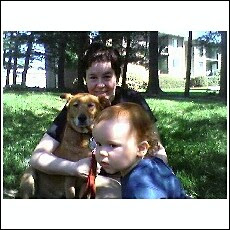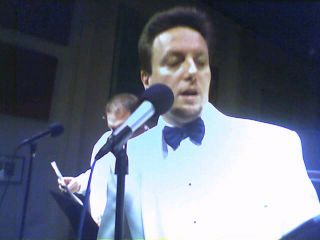
Longtime readers (all five of you) will remember I read a lot of fiction that could be best described as "MetaPoMoAdventureLiterature". Okay, maybe I'm the only one who calls it that, but the point is that I enjoy reading fiction that comments (in an entertaining non-polemic way) on comic books and/or pulp fiction.
Books like Michael Chabon's Pulitzer Prize-winning "The Amazing Adventures Of Kavalier and Clay" and his edited pulp anthologies for McSweeney's , Glen David Gold's"Carter Beats The Devil ", Alan Moore's "The League Of Extraordinary Gentlemen" (the book only, please) and "Tom Strong", and Austin Grossman's "Soon, I Will Be Invincible" all explore this subject in the way that television's "Heroes" and, redoubtable auteur M. Night Shyamalan's "Unbreakable" have in their respective mediums. Most of these incorporated an agenda that Marvel Comics pioneered in the early sixties, DC Comics revitalized in the mid-late eighties (through their British Creator- driven Vertigo line) and film adaptations of their works have carried over from the nineties through today: "How can you put our reality into the fantastic world of the Superhero?"
To which, Chabon and, now Paul Malmont in his book "The Chinatown Death Cloud Peril" add "How might the creators of fantastic works have reacted when events in their lives become equally fantastic?"
I recently read a review that had Malmont's book compared to the film "Galaxy Quest", and while I loved that film, "...Peril" has none of the comedic "underdog wins" theme. This book tells the story of Walter Gibson (who under the pseudonym of "Maxwell Grant" wrote "The Shadow" stories and helped create the radio show) and Lester Dent (aka "Kenneth Robeson" created and wrote the "Doc Savage" novels and radio shows) as they seperately and together investigate, a mystery involving legends in New York's Chinatown section, the mysterious death of H.P. Lovecraft and how they may be related. Along the way, they are aided by Chester Himes and the young L. Ron Hubbard who becomes a sort of Jimmy Olsen for Gibson and Dent. There are also appreances from a drifter known for most of the book as "Otis Driftwood" (Groucho Marx's character in "A Night At The Opera") and a cowboy sailor named "Lew". Finally, the last chapter has a mysterious narrator who reveals themself only in the final paragraph.
Listen, Malmont had me at "creators of The Shadow and Doc Savage fight crime in the thirties", but like "...Kavalier and Clay" he seems to be going for bigger ideas here. Specifically how pulp and reality impact each other. And, although Chabon is more successful with his bigger ideas (a book-length commentary on how the Jewish people have always needed some sort of bigger-than-life figure to inspire their breaking free of oppression, in the fictional form of epic adventures), Malmont never fails the pulp form and even transcends it in the character of Dent's wife Norma.
A sort of Nora Charles to Lester's absent-minded adventurer/writer, when we first meet her Norma has been through four miscarriages and is coming close to a nervous breakdown by remaining indoors, cooking elaborate dishes for her husband and obsessing on various real-life lost treasures (the latest of which is Dutch Schultz's last words and how they may lead to where he secreted his millions). When Lester begins to try and research, a legendary mysterious assasination in Chinatown, Norma is more than eager to come along for the ride to get out of the house, to stop thinking about her own problems and to prove herself "useful" to Lester. But she is no shrinking violet. She more than holds her own with the men, and becomes the focus of attraction for both "Driftwood" and Lew.
I also loved how Malmont includes Orson Welles in one chapter, as he and Gibson watch the poor serialized version of "The Shadow" entitled "The Shadow Strikes", Welles screaming out that they've ruined the character in the middle of the theater. When "The Shadow" changed from mysterious host to mysterious crime fighter , Welles was the first actor to play the character, which made it possible for his Mercury Theater to get their own raido show. This is made apparent in "...Peril", as well as Max Allan Collins' "The War Of The Worlds Murder" (sort of a "Carter Beats the Devil" to Malmont's "The Amazing Adventures Of Kavalier and Clay", with Gibson investigating a murder during Welles' infamous "War Of The Worlds" broadcast). Malmont even introduces through Welles, how Welles might have made a Shadow film himself. And it sounds pretty good, if a little too much influenced by Fritz Lang's "M".
Again, it's hard for me not to like a book of fiction with Orson Welles in it.
I hope you take a chance on this for your summer reading. If you don't, enjoy the mediocre dung you deserve, sucka!
I mean, um, just try the book. I don't know where that other stuff came from.
Books like Michael Chabon's Pulitzer Prize-winning "The Amazing Adventures Of Kavalier and Clay" and his edited pulp anthologies for McSweeney's , Glen David Gold's"Carter Beats The Devil ", Alan Moore's "The League Of Extraordinary Gentlemen" (the book only, please) and "Tom Strong", and Austin Grossman's "Soon, I Will Be Invincible" all explore this subject in the way that television's "Heroes" and, redoubtable auteur M. Night Shyamalan's "Unbreakable" have in their respective mediums. Most of these incorporated an agenda that Marvel Comics pioneered in the early sixties, DC Comics revitalized in the mid-late eighties (through their British Creator- driven Vertigo line) and film adaptations of their works have carried over from the nineties through today: "How can you put our reality into the fantastic world of the Superhero?"
To which, Chabon and, now Paul Malmont in his book "The Chinatown Death Cloud Peril" add "How might the creators of fantastic works have reacted when events in their lives become equally fantastic?"
I recently read a review that had Malmont's book compared to the film "Galaxy Quest", and while I loved that film, "...Peril" has none of the comedic "underdog wins" theme. This book tells the story of Walter Gibson (who under the pseudonym of "Maxwell Grant" wrote "The Shadow" stories and helped create the radio show) and Lester Dent (aka "Kenneth Robeson" created and wrote the "Doc Savage" novels and radio shows) as they seperately and together investigate, a mystery involving legends in New York's Chinatown section, the mysterious death of H.P. Lovecraft and how they may be related. Along the way, they are aided by Chester Himes and the young L. Ron Hubbard who becomes a sort of Jimmy Olsen for Gibson and Dent. There are also appreances from a drifter known for most of the book as "Otis Driftwood" (Groucho Marx's character in "A Night At The Opera") and a cowboy sailor named "Lew". Finally, the last chapter has a mysterious narrator who reveals themself only in the final paragraph.
Listen, Malmont had me at "creators of The Shadow and Doc Savage fight crime in the thirties", but like "...Kavalier and Clay" he seems to be going for bigger ideas here. Specifically how pulp and reality impact each other. And, although Chabon is more successful with his bigger ideas (a book-length commentary on how the Jewish people have always needed some sort of bigger-than-life figure to inspire their breaking free of oppression, in the fictional form of epic adventures), Malmont never fails the pulp form and even transcends it in the character of Dent's wife Norma.
A sort of Nora Charles to Lester's absent-minded adventurer/writer, when we first meet her Norma has been through four miscarriages and is coming close to a nervous breakdown by remaining indoors, cooking elaborate dishes for her husband and obsessing on various real-life lost treasures (the latest of which is Dutch Schultz's last words and how they may lead to where he secreted his millions). When Lester begins to try and research, a legendary mysterious assasination in Chinatown, Norma is more than eager to come along for the ride to get out of the house, to stop thinking about her own problems and to prove herself "useful" to Lester. But she is no shrinking violet. She more than holds her own with the men, and becomes the focus of attraction for both "Driftwood" and Lew.
I also loved how Malmont includes Orson Welles in one chapter, as he and Gibson watch the poor serialized version of "The Shadow" entitled "The Shadow Strikes", Welles screaming out that they've ruined the character in the middle of the theater. When "The Shadow" changed from mysterious host to mysterious crime fighter , Welles was the first actor to play the character, which made it possible for his Mercury Theater to get their own raido show. This is made apparent in "...Peril", as well as Max Allan Collins' "The War Of The Worlds Murder" (sort of a "Carter Beats the Devil" to Malmont's "The Amazing Adventures Of Kavalier and Clay", with Gibson investigating a murder during Welles' infamous "War Of The Worlds" broadcast). Malmont even introduces through Welles, how Welles might have made a Shadow film himself. And it sounds pretty good, if a little too much influenced by Fritz Lang's "M".
Again, it's hard for me not to like a book of fiction with Orson Welles in it.
I hope you take a chance on this for your summer reading. If you don't, enjoy the mediocre dung you deserve, sucka!
I mean, um, just try the book. I don't know where that other stuff came from.






No comments:
Post a Comment